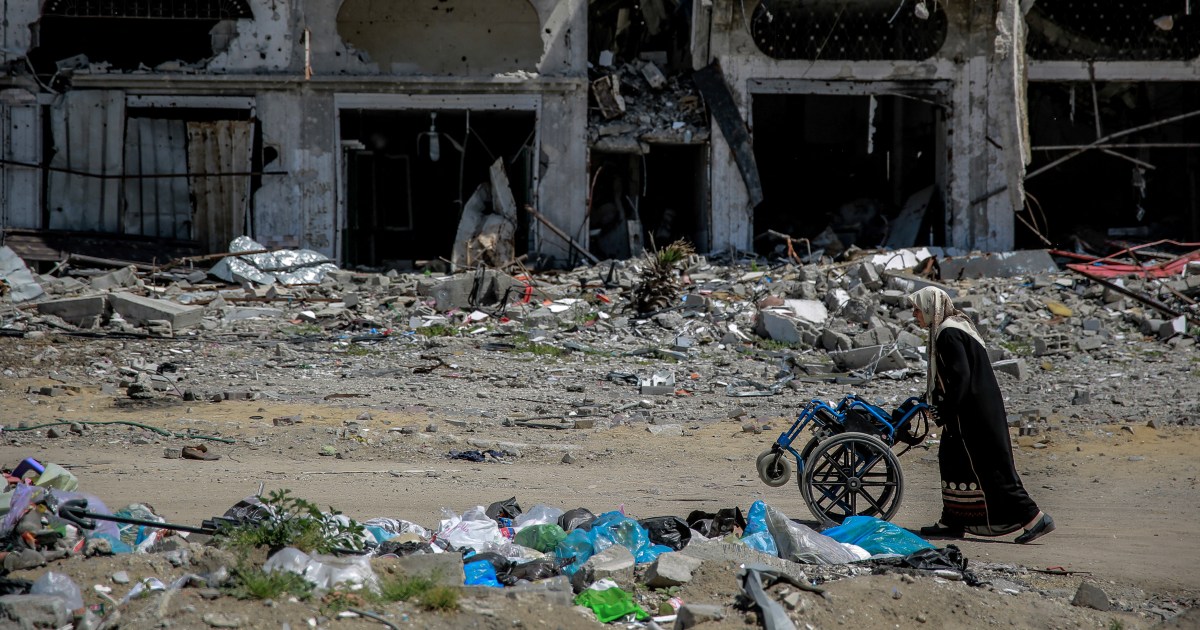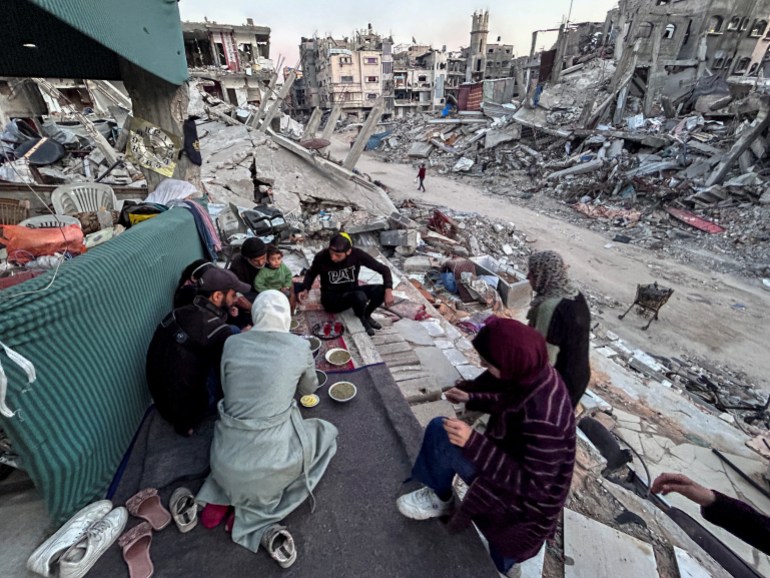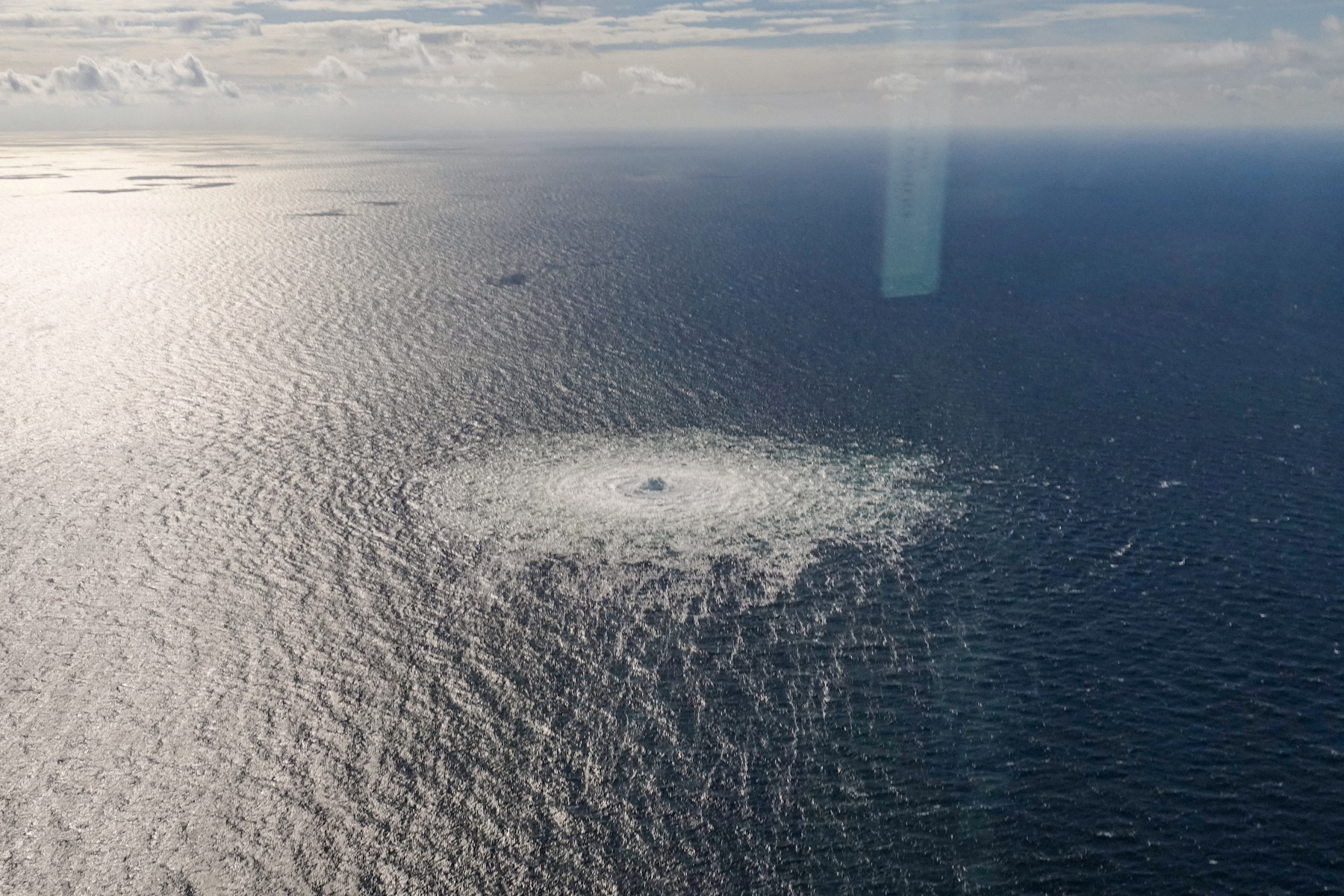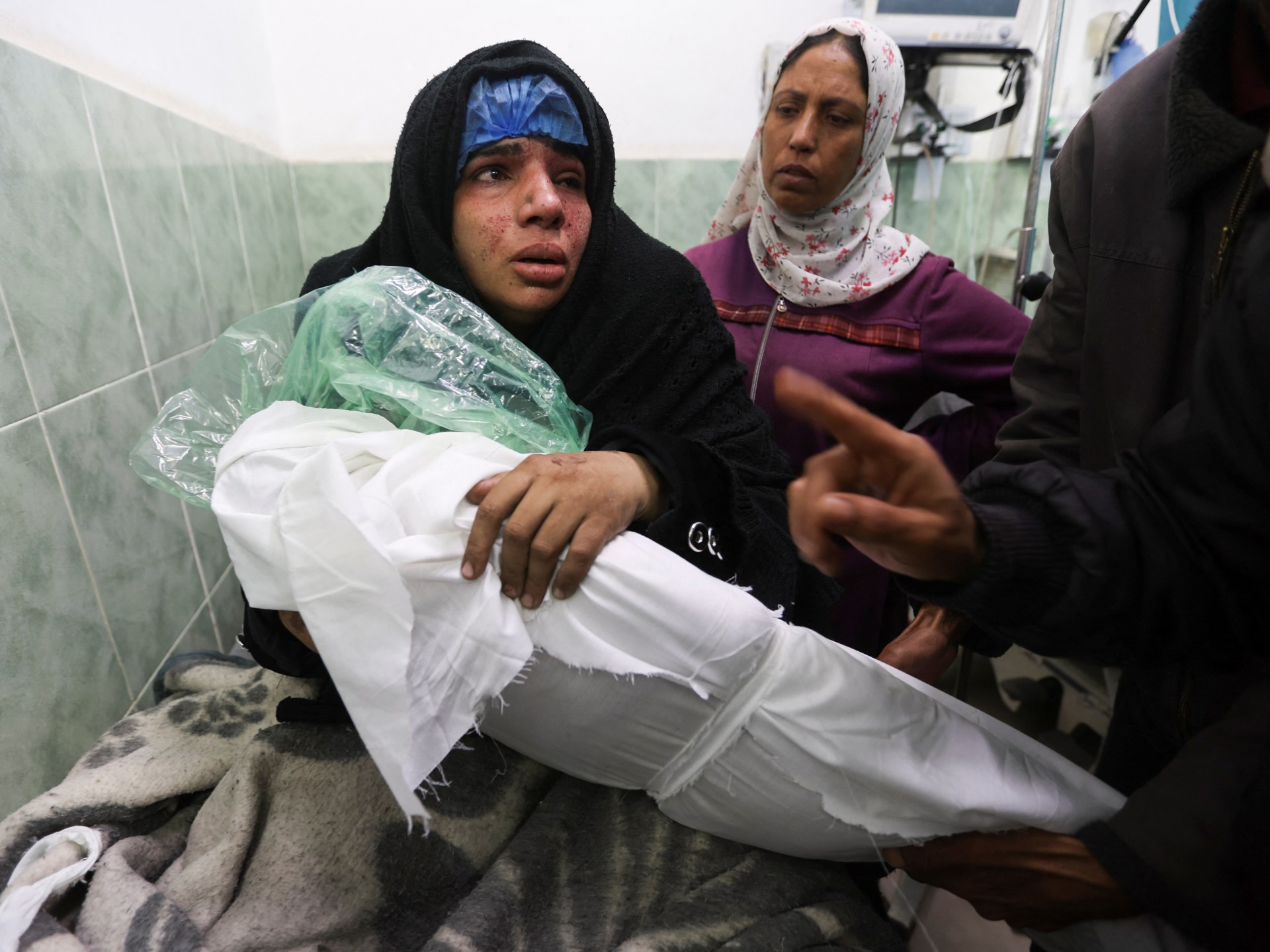
In the days leading up to Ramadan, we heard the hopeful word “ceasefire.” The US President said it and the media repeated it. For a brief moment, the lives of Palestinians in Gaza hung in the balance, caught between the possibility of a ceasefire for the holy month and Israel’s relentless drive to drive my people from the face of the earth.
International Women’s Day came and went; Women in Canada, where I physically live, celebrated; Women in Gaza, where my heart lies, faced another day struggling to help their families survive. Yet there are no signs of a ceasefire.
In the evening, we heard the breaking news on the television – which we have not turned off in our house since October 7th – that the Israeli Occupation Forces (IOF) had targeted the area around the Al-Masri Tower in Rafah.
Al-Masri is one of the oldest apartment blocks in Rafah. Dozens of families used to be housed here, but since the start of the war many more have found refuge there. My uncle Fathi and his extended family were among them. I screamed in disbelief.
When my youngest son Aziz saw my distress, he whispered and tried to comfort me. “Mom, at least the tower won’t be hit directly like Uncle Nayif’s or Uncle Harb’s houses. Uncle Fathi is lucky. Thank Allah.” This is the new good luck charm in Gaza: not dying, escaping an Israeli attack that leaves you homeless. The burden of loss and uncertainty weighed heavily on me as I waited to learn the fate of my relatives .
Uncle Fathi, his wife, his adult children and their families, his brothers and their families, nephews and nieces and other members of the extended family had fled to Rafah after the Israeli army entered Khan Younis. Uncle Fathi worked in Saudi Arabia for many years before returning to Gaza to work as a teacher with the United Nations in the Khan Younis refugee camp. The entire family consists of highly educated professionals who lived in a beautiful house in Khan Younis, which was destroyed by an Israeli airstrike in December.
Shortly afterwards, Uncle Fathi posted a before and after picture of their house on Facebook. He wrote: “This is our beloved home that is gone. The fruit of hard work and effort over 40 years has been destroyed and destroyed by the occupying army that claims to be moral. I wonder what my home did to them… Did it fight them? …This is the collective punishment of people, stones and all life forms…Allah is sufficient for us and is the best steward of affairs.”
My cousin Ahmad, Uncle Fathi’s son, had gone back to see what was left of their house. That’s when he learned that some neighbors – my husband’s relatives – had stayed behind to take care of the elderly and disabled who couldn’t be relocated. They had all found refuge in the divan (the family hall for social gatherings) of a house. Then the bombs hit, killing 18 of them.
Ahmad described the horror, his words burned into my soul. He told me how he had collected the body parts of my husband’s family – old people, children and women – scattered everywhere. He did what he could for the dead, then he had to think about the living. He rummaged through the rubble of his family’s home, looking for children’s toys and clothes to take to the new accommodation in Al-Masri Tower.
As the attack on Al-Masri Tower unfolded, I remained glued to the television, praying that my relatives had survived. I was afraid that my uncle, with his heart problems and high blood pressure, would be at risk even then. When we last spoke, Ahmad had expressed deep fear for his father’s health. A few hours later it was confirmed that the tower had been hit. People documented it with their cell phone cameras. I tried to sleep.
The first thing I saw when I opened my eyes the next morning was a video clip shot by a young man that showed the raw emotions, chaos and uncertainty on the faces of the young and old in the midst of the darkness; The heartbreaking screams of small children could be heard in the background. “It’s 3 a.m. and I’m still on the street with my family. The tower was hit by five rockets. We don’t know where to go, but thank God we are alive,” he said.
Then a message came from my cousin Mohammed, the other son of Uncle Fathi, a professor in Oman: “Ghada, my father and the families left the building 30 minutes before the impact.” My father is fine.” Relief overwhelmed me .
The weekend continued, from the fate of Uncle Fathi and his family to new horrors that occurred as Ramadan approached. I was involved in a constant stream of phone calls and text messages with family members in Canada and the Middle East. We searched for news to make sure that one or another family member had survived terrible suffering.
My Aunt Aziza’s trembling voice on the phone from the United Arab Emirates delivered the shocking news of the arrest of several of our relatives by the IOF in the town of Hamad, Khan Younis. They had returned to their abandoned home to retrieve some items because they thought the Israeli military had withdrawn from the area.
But IOF soldiers appeared and surrounded them. The large group also included three of my cousins. They, along with all the other men, were stripped down to their underwear and had their dignity destroyed in front of their families in an act of unimaginable humiliation. They were subjected to interrogation and brutal beatings before being taken to an unknown location.
For one of my relatives, the agony of witnessing such horror was too great. Jamal, the nine-year-old disabled son of one of my cousins, Shaima, suffered seizures. The Israeli soldiers, not knowing what to do with her and her sick and hungry child, released her after several hours of holding them on the street.
She was ordered to run away without looking back. Fearing that she would be shot if she turned her head to see the fate of the others, she immediately left with her son in her arms and only looked ahead. She carried her son all the way from Hamad to al-Mawasi, weeping at the horror she had just witnessed, not knowing how to break the devastating news to our family.
This news shook my heart. Would we ever see our cousins again? Would they be released or would they suffer the same fate as the many Gaza men who were taken hostage by the IOF and then either shot or imprisoned in torture centers? I could not sleep.
The next day I spent time on Facebook looking for updates about my family. The crescent moon was supposed to usher in the holy month that night. I wondered about those of us who chose to fast and those who endured famine in Gaza.

Then I saw a post by my uncle Hany about his experiences returning to his home in Khan Younis refugee camp after being evacuated on Christmas Eve. He wrote:
“I went home. There was severe destruction in the town. In front of me is a familiar rectangular building that was slightly damaged. I was able to determine the coordinates of my house. Someone shouted from the mountains of rubble: “Don’t go down this bumpy path, take this path,” and he pointed with his hand. I arrived with difficulty, the place was full of rubble. A shell was cut off the neck of my only palm tree… Even my tree has a place in my heart. I was looking for Abu Khudair, mine cat, but couldn’t find him. Someone told me that he had seen the cat and that he was alive. I didn’t stay long. I didn’t come to mourn stones. I left the camp on the other side .I turned around when a girl shouted, “Thank Allah for your safety.” It was [our neighbour] Aida! I shouted in surprise, “What brought you here, you crazy girl?” She said, “I didn’t go at all.” I stayed with my father.’ Aida had little luck in life. She had little education and came from a poor family, and her father had lost his mobility and memory. “How could I leave him? “Either we live together or we die together,” she said.
His post continued:
“How could Aida care for her father for so long while death hung over them for weeks? This girl is the biggest, bravest, smartest and most pious… Aida is an icon. I said to myself as I controlled my steps to balance on the mounds of rubble: Who among us could match Aida’s strength? No one. She is a martyr living on earth.”
As the Ramadan moon came into view across Gaza, people greeted each other with the words “Ramadan Kareem,” meaning “Ramadan is generous.” Others would answer: “Allah Akram,” which means “Allah is the Most Generous.”
Indeed, Allah is the Most Generous and Aida’s experience is further proof of this.
Aida stands in stark contrast to those who ignored the genocide. She is a beacon of courage and hope in the darkest moments. Their very presence among us exposes the barbarism of world politics and the cowardice of political leaders who choose to tolerate genocide and refuse to stop it. Who among them could ever reach Aida’s level? Thank God she lived to see another day.
The views expressed in this article are the author’s own and do not necessarily reflect the editorial stance of Al Jazeera.






Recent Comments